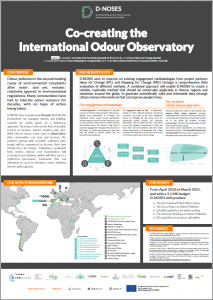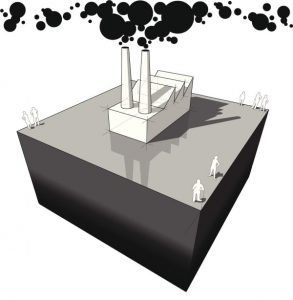D-NOSES Team Meeting in Etopia, Zaragoza
We are excited to share the project progress with you after the first six months of intensive preparations, presentations and events.

Consortium Meeting in Zaragoza - Pilots, Stakeholders and Progress
Before the meeting, an organized visit to the Forum Area in Barcelona gave project partners an intimate look into the persistent odour issues in the area, a problem for the community there for many years, and a problem that D-NOSES hopes to help resolve.
The next day, the teams from Ibercivis, Mapping for Change and Ideas for Change, ran a Pilot Design and Planning workshop for the pilot representatives to start mapping out their activities for the next year in support of their citizen science interventions.
Events and Activities
The project partners have been busy over the last 6 months preparing the new model and the launch of the pilots – but also in promoting the project and engaging with the wider community of citizen science, odour experts and emitting industries. Here is a selection:
- Kick-off meeting in London
- IFAT Munich 2018 – Presentation & Networking
- Statement and Presentation during the 22nd Meeting of the Parties to the Aarhus Convention
- ECSA Conference – Poster Presentation & Networking
- beWasteWise Webinar – Watch the recording here
- NOSE Conference – Odour Training Workshop

Principle 10 and the Right to Create Data
The right to access data requires data to exist – we cannot allow a monopoly on who can create that data. D-NOSES will push for citizens’ democratic right to create valid scientific data that is taken seriously by governments and policy makers.
Citizen Science in Society and Policy
The more traditional science establishment has been reluctant to embrace the concept of citizen science, in which data is contributed by regular citizens, untrained in the rigorous art of data collection. Recognizing this concern, there are several common strategies that promote research integrity.


Odours and Affected Populations
Odours remain largely under-regulated, despite being the second most common reason for complaints after noise. Odour issues are also commonly dismissed as just nuisance, but the scientific evidence points to material health effects on affected populations – and international groups are starting to take notice.